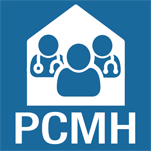WEST PALM BEACH, Fla. (CBS12) — Doctors and scientists are calling COVID-19 a game-changer.
This pandemic has not only pushed our healthcare system to its limits, but it has also created new challenges and driven innovation that will change the way we deal with illness and disease.
EMERGENCE OF TELEHEALTH
One change it has ushered in is the popularity of telehealth.
Just like setting up a video chat with a friend, patients and providers are having virtual appointments instead of meeting at the doctor's office.
"When you need a five-minute check-in with your doctor, to not have to take an hour, hour and a half out of your day, is huge," said Sara Greene, a mother in Boca Raton.
Greene has been able to video chat with her dermatologist, physical therapist, and more -- without leaving the comfort of home.
She says the option helps her stay safe at home and reduces the risk for community exposure.
"If you are sick, you don't want to schlep out of your house to a doctor's office," she said, adding that it's a more efficient use of time.
"If there is a silver lining to this awful tragic thing that's been happening, it's really telehealth," said Dr. Terry Adirim, a Dean at the Florida Atlantic University College of Medicine.
Dr. Adirim acknowledges virtual visits have their limitations: providers cannot administer medication and do diagnostic tests, for example.
But overall, she says it's worthwhile for both patients and doctors.
"It is so important to our physicians that they are able to lay eyes on patients," she said. "You can tell when [patients] are struggling to breathe. You can look at their color. There's a lot you can do, and impressions you can get during the visit."
Dr. Adirim said even though the technology was available, telehealth was not widely practiced before this pandemic.
She said doctors were not getting paid for telehealth visits previously, but during this emergency, the Center for Medicare and Medicaid Services decided to pay for virtual healthcare at the same rate as an in-patient visit.
Additionally, regulators relaxed privacy rules that had previously restricted telehealth platforms.
Dr. Adirim hopes even after the COVID-19 crisis passes, telehealth will be here to stay. "We've gotten amazing feedback in our faculty practice, and I've heard that from colleagues around the country," she said.
STRAIN ON HOSPITALS AND CLINICS
At a time when we need them the most, hospitals and health clinics are struggling.
Healthcare workers have been pushed to their limits, in some cases, without enough protective equipment.
With elective surgeries cancelled, hospitals across the country are losing revenue and some, like Jupiter Medical Center, have announced furloughs. According to the American Hospital Association, hospitals and healthcare systems in the U.S. are expected to lose about $200 billion in revenue from March-June due to COVID-19.
"Some of our chronically ill patients, with diabetes, high blood pressure, they refuse to come in," said Yolette Bonnet, CEO of FoundCare health clinics in Palm Beach County.
Bonnet said doctors and patients have been fearful about coming in due to the potential for virus exposure, and in the weeks after the COVID-19 crisis first began, she said productivity was down 50 percent. One thing that is helping is incorporating telehealth -- but it's not an easy option for all patients.
Some of their clients do not have access to technology.
Bonnet said as the economic crisis continues to fuel unemployment, she expects to have more and more people come to her clinics for help. As a federally qualified community health center, they do not turn anyone away -- regardless of their ability to pay.
"We are going to continue to need support," she said.
INNOVATION AND COLLABORATION
Dr. Adirim said this pandemic is a wake-up call. It has exposed how unprepared governments and healthcare systems were for a catastrophic event, and highlighted the need for more hospital capacity and PPE. It is also pushing researchers to develop therapeutics, testing, and vaccines faster than ever before.
"There is a lot of innovation going on," she said. "I think it's going to motivate our hospitals and clinics to prepare for catastrophic events, and it's going to take our government seeing this as an important investment. I see this pandemic changing a lot in not only how we deliver healthcare, but I think there is going to be a reckoning too after this."
Footage provided by WPEC
Reported by Danielle Waugh













